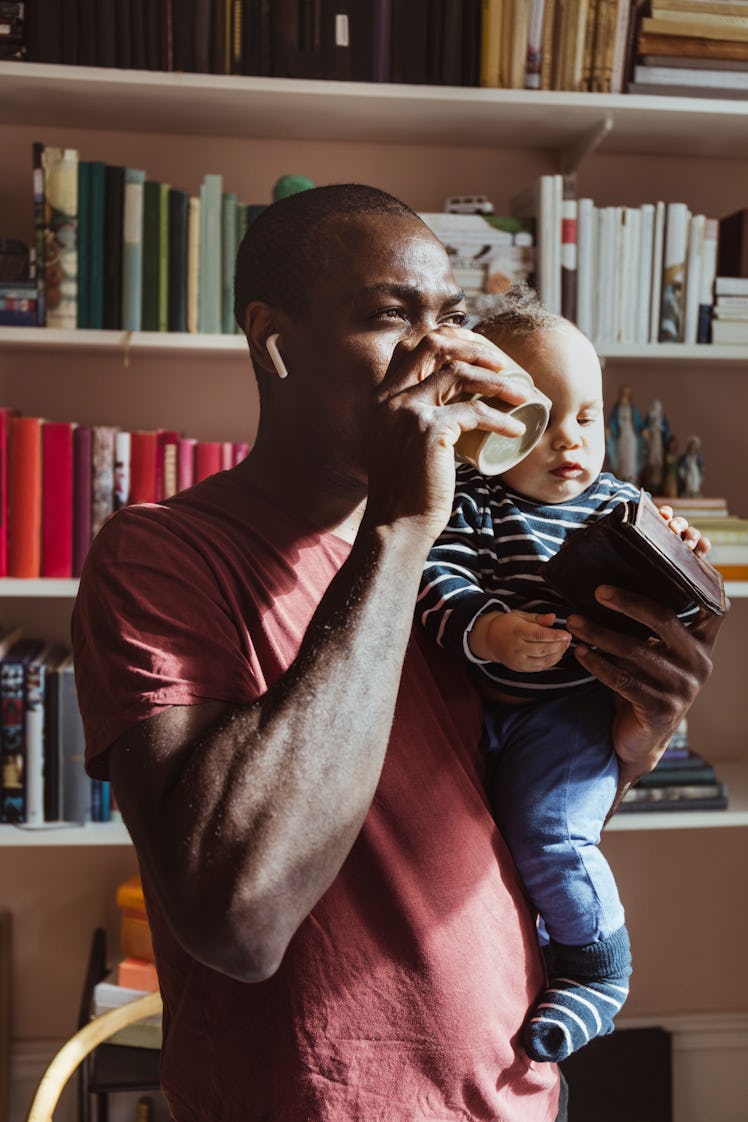Does Caffeine Make You Poop? What About Decaf Coffee?
Coffee has a reputation for landing people on the toilet. What about your cup of joe does the trick?

If you’re reading this before 9:00 a.m., you’re probably on the toilet, and a cup of coffee is probably what got you there. What is it about coffee that gets the bowels moving? Does caffeine make you poop? Or does decaf coffee get you on the crapper too? No one is 100% sure — there’s not solid evidence for any one theory or that coffee makes everyone poop in the first place.
What experts do know is that after a cup of joe, the colon contracts. It forces its contents towards the rectum and, sooner rather than later, into the toilet. What triggers the colon to contract is more of a mystery, and investigations into it have a weird science history.
In 1998, 12 selfless individuals took one for the team, undergoing an anal probe to reveal what goes on in the gut after drinking coffee. Over the course of 10 hours, the volunteers consumed black Columbian coffee, decaffeinated coffee, water, and a 1,000 calorie burger meal in a random order, according to the study. The probes measured contractions in the colon after the person ate or drank, and the researchers found that caffeinated coffee caused just about as many contractions as the burger. The colon was less active after decaf coffee compared to caffeinated coffee, which suggests that caffeine is largely responsible for coffee poops.
Another anal probe study with 10 people backs up the evidence for caffeine. After drinking a caffeine solution, the volunteers had more pressure at the sphincter muscles that control pooping. They also had more of a “desire to defecate” than when they drank water.
However, caffeine is not the only substance at play, as several other small studies have found that decaf coffee also increases colon activity. It’s not surprising that caffeine isn’t the only culprit, Kyle Staller, a gastroenterologist at Massachusetts General Hospital, told Health. After all, caffeinated sodas don’t make people have to poop like coffee does.
Both decaf and caffeinated coffee may increase activity in the colon by triggering gut hormones. They can increase levels of gastrin, a hormone that increases colon activity, by 1.7 and 2.3 times their normal levels, respectively, according to a 1986 study of 10 participants. Coffee also increases levels of a hormone called cholecystokinin (usually shortened to CCK), which helps the digestive system move food along.
The simple act of drinking may also be a part of coffee’s claim to the throne. Eating or drinking anything can spur what’s called the gastrocolic reflex, which essentially makes the colon more active after ingestion. What you put in your coffee also plays a role. Using dairy creamers can give people with lactose intolerance the runs. Globally, 65% of people don’t fully digest lactose.
And if you drink your coffee in the morning? The reason you run to the bathroom afterward may have less to do with the coffee and more to do with the time of day. When you wake up, your bowels wake up too. They contract three times as hard in the first hour of wakefulness compared to during sleep. Even without coffee, you already have a better chance of pooping after waking up.
For some people, morning poops are annoying. But for others who struggle to stay regular, drinking coffee in the morning can keep you on track. If your bowels need a little extra encouragement, eat breakfast too.
“You’re most likely to have a bowel movement when you wake up (because your colon wakes up), after you eat a meal, and when you drink coffee. Syncing those three things up gives you the best chance to get things going,” Staller said. “That’s a huge positive aspect of drinking coffee.”
This article was originally published on